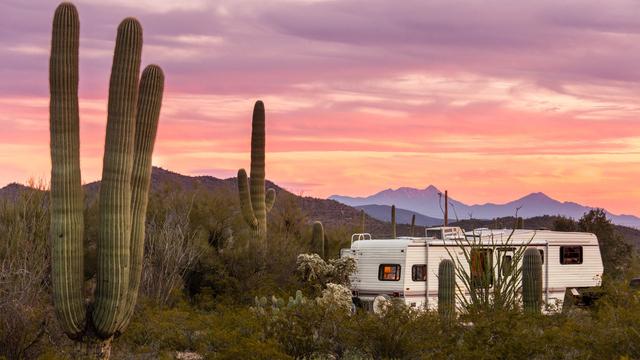The Drive and its partners may earn a commission if you purchase a product through one of our links. Read more.
An RV is one of the easiest and most adventurous ways to live. Whether it’s a 6-month excursion across the country or a three-day trip to a local state park, RVs have everything you need to blend indoor and outdoor life. They’re essentially cabins on wheels, with beds, showers, toilets, and nearly full kitchens. Still, a large majority of RV users still heavily rely on connections and hookups to provide electricity and water.
But what happens when you want to venture out of the world of full campgrounds and into the world of public land? A random field in Montana will not have a place to plug into or a direct hose line with fresh water. This off-grid lifestyle is growing in popularity—wonder why!—and with it, solar harvesting systems have grown to become impressively efficient and easy.

Solar energy is the primary add-on you need for an off-grid lifestyle, but it’s not the only thing to consider. There are several preparations you need before you leave people behind and let the beards and armpit hair grow, so The Drive editors have created a brief checklist to help you out. Time for adventure!
What Is an RV?
RV stands for recreational vehicle. An RV is a wheeled unit with living quarters used for recreational purposes like camping and traveling. Some RVs, also known as travel trailers or caravans, have integrated propulsion systems, while others require vans, trucks, or SUVs to pull them around.
What Does Off-Grid Mean?
Living off-grid means you are not using the public grid of utilities, in particular electricity. Off-grid means no direct water line, no electricity, and no waste disposal. In the RV world, this is sometimes also referred to as boondocking, free camping, or dry camping.
